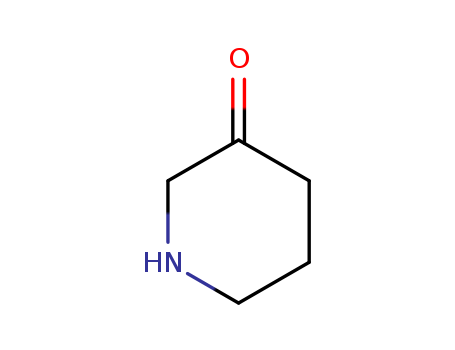10.1021/acs.orglett.5b00276
The research focuses on the development of a selective hydrogenation method for synthesizing piperidin-3-ones, which are important intermediates in the production of pharmaceutical agents and natural products. The study utilizes a homogeneous iridium catalyst to hydrogenate 3-hydroxypyridinium salts, yielding 2- and 4-substituted piperidin-3-one derivatives with high yields and chemoselectivity. The experiments involved screening various catalysts, solvents, and bases to optimize reaction conditions. Key reactants included 2-phenylpyridin-3-ol as a model substrate and [Ir(COD)Cl]2 as the catalyst, with triphenylphosphine (PPh3) as the optimal ligand and sodium bicarbonate as the base. The reaction was conducted in dichloroethane (DCE) solvent under 600 psi of hydrogen pressure at 50°C for 20 hours. The analyses used to evaluate the reaction included 1H NMR to determine conversion rates and product ratios, as well as isolated yields to assess the efficiency of the process. The optimized conditions led to full conversion and high selectivity for the desired piperidin-3-one products, with further scalability demonstrated through gram-scale experiments.





